When you think of the beating heart of a modern farm, chances are your mind goes straight to the tractor. For generations, diesel tractors have been the undisputed king of the field. But in recent years, a silent revolution has been growing—quiet, clean, and full of promise: electric tractors. And while they may not roar with the same fury, they're gaining traction (literally) faster than ever. But is the switch worth it? Let's peel back the layers with data, insights, and a touch of real-world experience—featuring the manufacturing perspective of Zhenith Tech, a seasoned leader in the tractor and RC mower game for over 12 years.
1. The Cost Equation: Upfront and Long-Term Realities
At first glance, diesel tractors seem like the budget-friendly pick. But the deeper you go, the more the numbers tell a different story.
Table 1: Cost Comparison (Electric vs Diesel Tractors Over 5 Years)
| Cost Factor | Electric Tractor (USD) | Diesel Tractor (USD) |
|---|---|---|
| Initial Purchase Cost | $85,000 | $70,000 |
| Fuel/Energy Cost (per year) | $1,500 | $5,500 |
| Maintenance Cost (per year) | $800 | $2,500 |
| Total Cost over 5 Years | $93,500 | $107,500 |
Takeaway: Despite a higher initial investment, electric tractors may become more economical after just a few years. Lower fuel and maintenance costs add up significantly.
Zhenith Tech’s operational efficiencies reduce tractor production costs by up to 20%, offering competitive electric and diesel models with extended 2-year warranties—softening the financial barrier for farmers considering the switch.
2. Environmental Impact: From Smog to Silence
With climate change no longer a theoretical threat but a visible crisis, sustainability has moved from buzzword to baseline. Electric tractors represent a step forward in low-emission agriculture.
Table 2: Environmental Impact
| Environmental Factor | Electric Tractor | Diesel Tractor |
|---|---|---|
| CO2 Emissions (tons/year) | 0 | 11.2 |
| Fuel Consumption (liters/year) | 0 | 3,500 |
| Noise Level (dB) | 60 | 85 |
| Renewable Energy Compatible | Yes | No |
Insight: The difference in CO2 emissions alone is startling. Electric tractors not only help cut fuel use, they also reduce noise pollution—important for farms near residential zones or sensitive ecosystems.
At Zhenith Tech, we're not just watching this trend—we're shaping it. Our production lines include precision CNC machining and automated assembly, allowing us to build cleaner, tighter, and more energy-efficient machines. Even our RC mowers, often used in garden or stadium spaces, are available in low-emission versions to minimize their environmental footprint.
3. Performance in the Field: Power, Torque & Practicality
Performance is where skepticism often arises. Can electric really match diesel's brute strength?
Table 3: Operational Efficiency and Performance
| Performance Metric | Electric Tractor | Diesel Tractor |
|---|---|---|
| Horsepower Range | 50 - 150 HP | 60 - 260 HP |
| Torque Delivery | Instant, high torque | Gradual, sustained torque |
| Uptime/Availability | 95% (fewer parts) | 90% (more downtime) |
| Ideal Usage Scenarios | Short-distance, eco zones | Heavy-duty, remote operations |
Reality check: While diesel still dominates in the upper horsepower bracket, electric tractors boast instant torque, ideal for precision tasks and hilly terrains. They're also easier to maintain due to fewer moving parts.
Zhenith Tech’s lineup, ranging from 50 to 260 horsepower, bridges this gap. Whether it's compact tractors for vineyards or rugged 4WDs for mountainous farms, we design with flexibility. Our engineering labs and three innovation centers allow for fast prototyping—so customer-specific needs, from snow blades to sprayer systems, are met swiftly.
4. Maintenance: The Unsung Budget Eater
Diesel engines are like high-maintenance friends. They require more frequent oil changes, filter replacements, and general upkeep. Electric tractors? More like the quiet cousin who never asks for much.
Electric drivetrains typically have 30% fewer mechanical components. No oil filters. No clutch. No diesel gunk to deal with.
Over five years, this can translate to a maintenance cost difference of nearly $8,500. And let’s not forget the downtime savings—especially for operations with tight seasonal windows.
Zhenith Tech’s global clients in over 50 countries consistently highlight this reduced downtime as a core advantage, especially during planting and harvesting crunch periods.
5. Refueling vs Recharging: Convenience Clash
One of the strongest remaining arguments for diesel is convenience. Diesel is everywhere. Fast to refuel. Works off the grid.
Electric tractors need charging infrastructure. Rural areas with unstable power grids might struggle here—unless solar or wind energy is part of the equation.
However, charging tech is catching up. Zhenith Tech has begun R&D into solar-charging modules and swap battery systems to mitigate this concern. Expect integration-ready models by 2026.
6. Market Perception and Adoption Curve
Let’s be real. Tradition runs deep in agriculture. A diesel engine’s growl can feel like part of a farmer’s DNA. But data is shifting the story.
According to the International Energy Agency, electric agricultural vehicle sales are growing by 22% year-over-year globally.
Government incentives in countries like Germany, the US, and China make the switch more palatable—offering rebates of up to 30% of the purchase price.
As early adopters report lower TCO (total cost of ownership), the trust in electric continues to grow. For brands like Zhenith Tech, this means not just following the curve, but staying ahead of it with next-gen product lines, smarter telematics, and modular platform designs.
7. Customization: One Size Doesn’t Fit All
Electric or diesel, the real value lies in a machine tailored to your land, workload, and local weather. This is where Zhenith Tech excels.
With over 40 tractor and mower models, multiple powertrain configurations, and OEM capabilities, Zhenith Tech provides:
Customized spraying and mowing attachments
Terrain-specific drive systems (e.g., crawler vs wheeled)
Integrated control units for RC operation
Whether you’re tending a small orchard in Italy or managing massive plains in Argentina, Zhenith offers machines that speak your farm's language.
8. Final Verdict: Who Wins?
Like many things in agriculture, the answer is: it depends.
If you need long hours, high horsepower, and operate far from the grid—diesel may still be king. But if you're focused on operational cost, sustainability, and ease of use, the electric tractor is an increasingly convincing challenger.
And here's the kicker: the future isn't about one replacing the other. It’s about smart segmentation—choosing the right tool for the right job.
At Zhenith Tech, we aren’t betting on just one horse. We’re breeding the whole stable.
If you're considering expanding or upgrading your agricultural fleet, talk to us. Whether you’re ready to electrify or sticking to diesel for now, Zhenith Tech offers expertly engineered, customizable solutions that make your work smarter, not harder.
In Conclusion
The debate between electric and diesel tractors isn’t just a clash of old vs new—it’s a mirror of how agriculture is evolving. While diesel still rules the rugged, electric is no longer a novelty. It's a reality—one that's cleaner, quieter, and sometimes even cheaper.
The question isn't “Should I switch?” but rather “When is the right time for me?”
And with Zhenith Tech standing by, you won’t be taking that step alone.

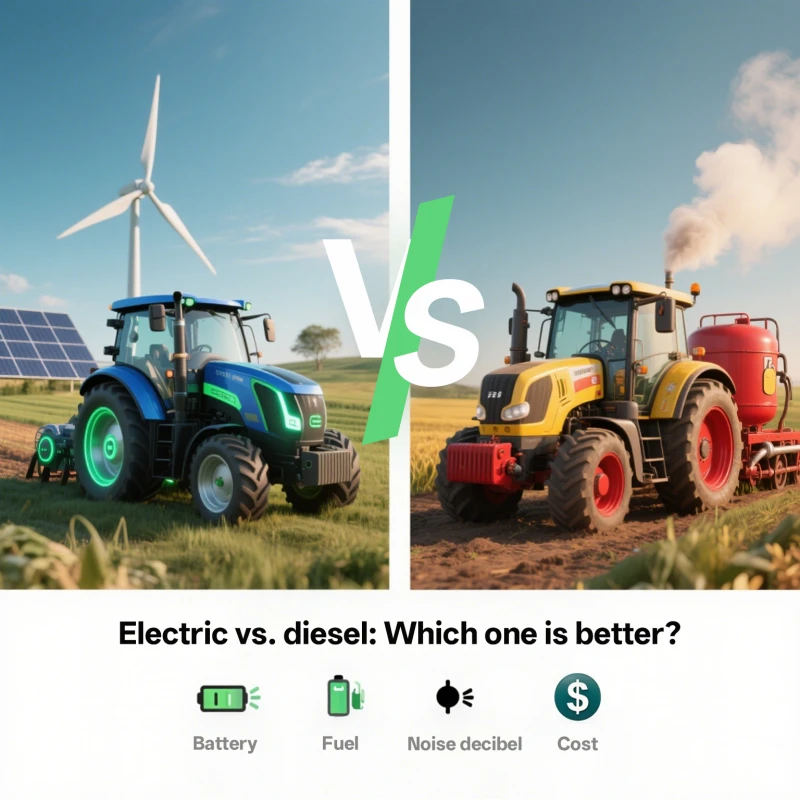
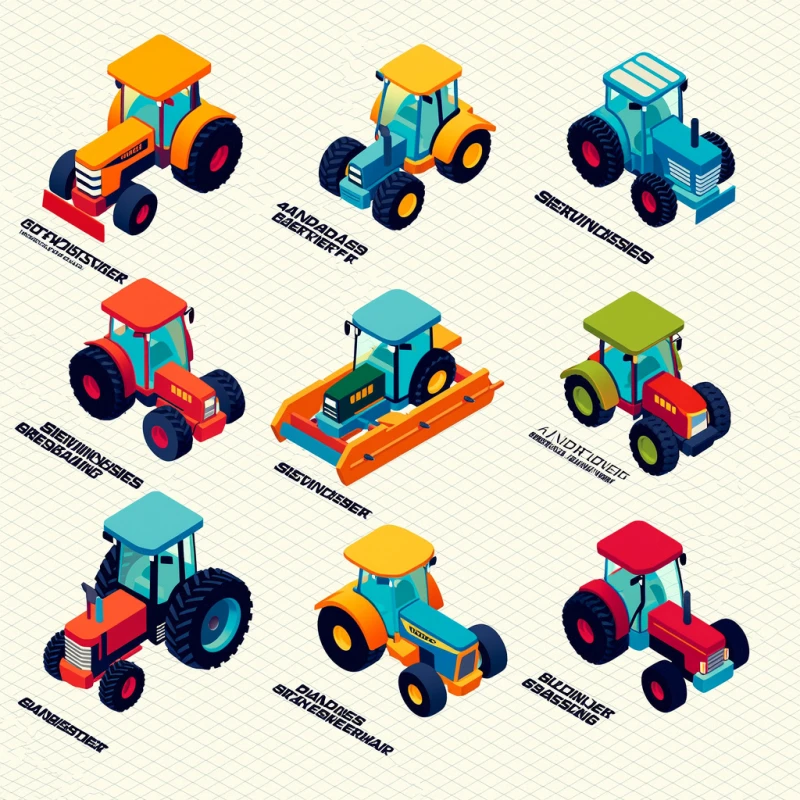
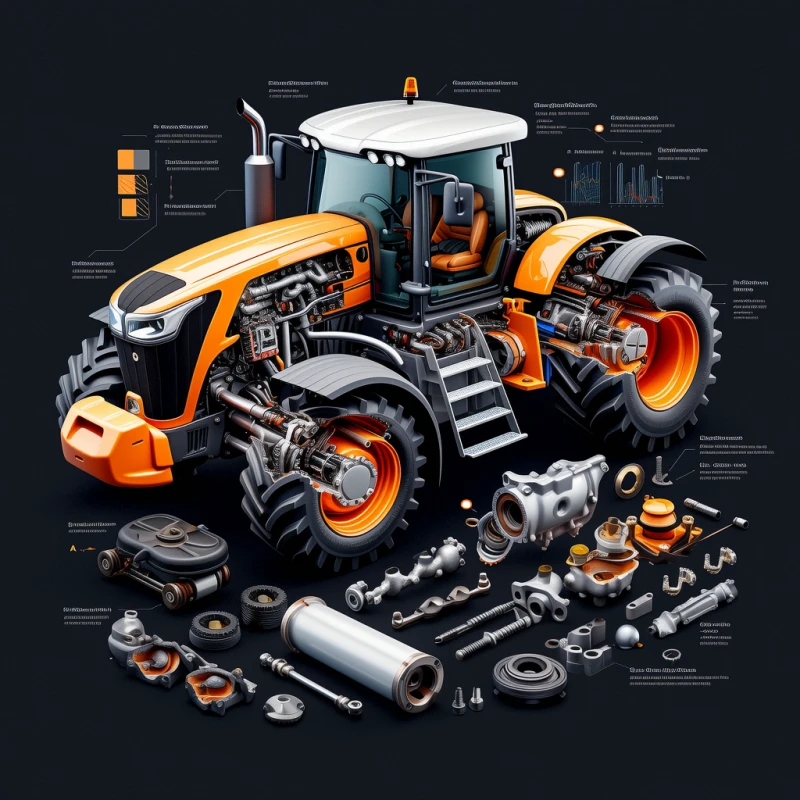


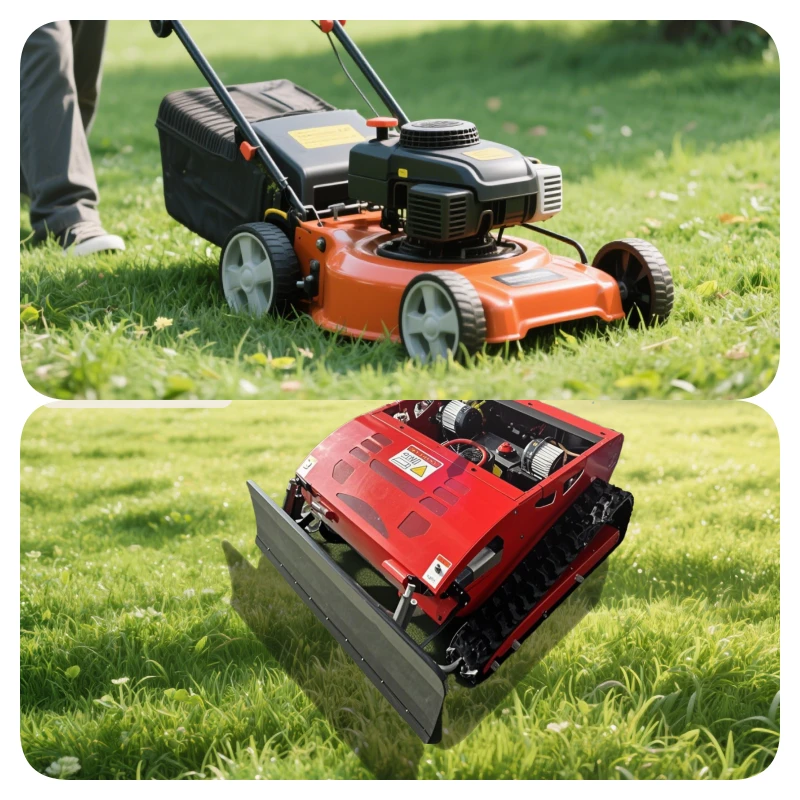
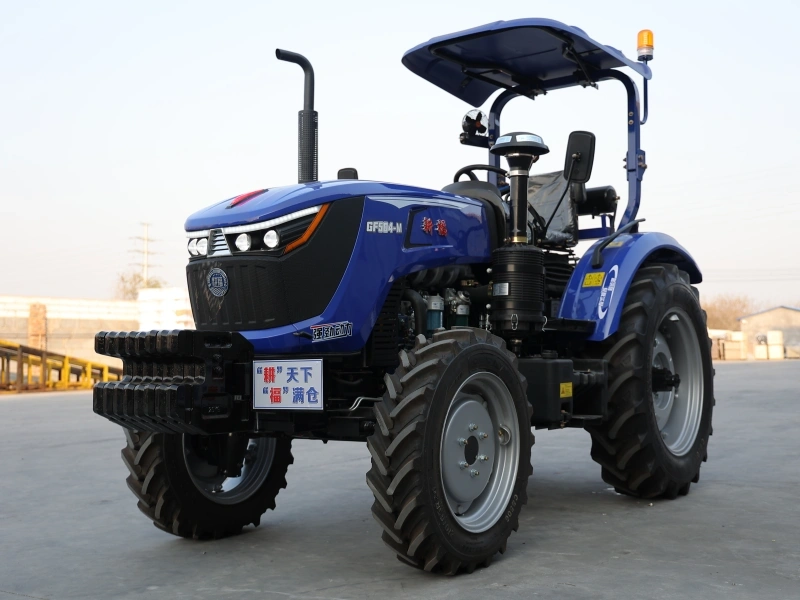
5578.webp)

